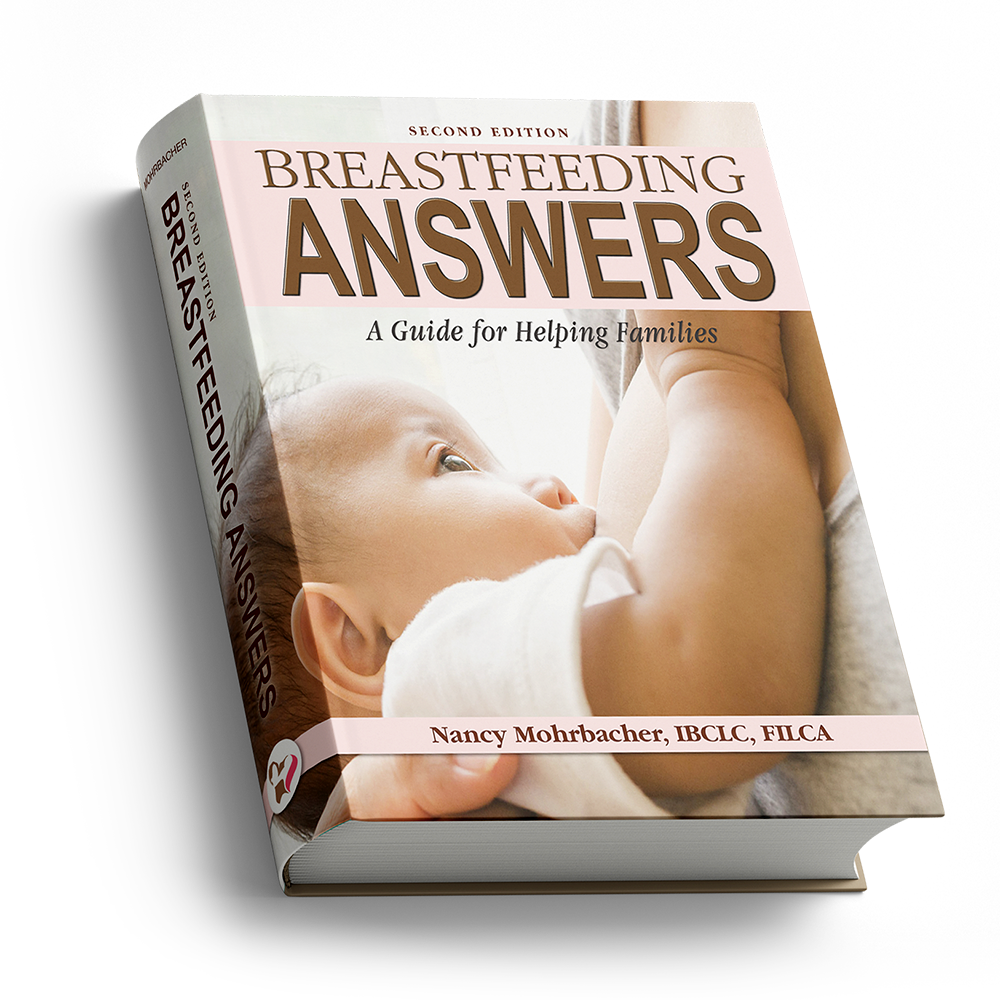Green Poop: When Should You Worry?
/Baby poop is high on many new parents’ worry list. How often should baby poop? Does baby’s poop provide clues to how breastfeeding is going? What do color and consistency mean? When should you worry?
Normal Color and Consistency
Baby’s first stools are the black and tarry meconium that was in her gut at birth. When breastfeeding is going well, by about the third day, baby’s poop changes to “transitional stools,” which have a dark greenish color. By the fifth day or so, the poop’s color changes again to yellow. Its consistency now (and until baby begins consuming anything other than your milk) may look like split pea soup, liquid with seedy bits in it. But if your baby’s poop is all liquid and no seeds, this is also normal.
Baby’s yellow poop is made mostly from the fat in your milk. During the first six weeks, babies gaining weight well usually poop at least 3 to 4 times a day with stools at least the diameter of a US quarter (22 mm) or larger. There is no such thing as too many poops. (Lots of pooping just means your baby is getting lots of milk, which is great.) But too few poops mean it’s time for a weight check.
If your baby is younger than 6 weeks old, is pooping fewer than 3 to 4 times per day, or her stools haven’t turned yellow by the fifth day, a weight check will tell you if this is just a normal variation or a cause for concern. It’s not until after 6 weeks that some healthy breastfed babies poop much less often, sometimes even once a week. Check baby’s weight at a health-provider’s office. A bathroom scale just won’t do. A weight gain of about 1 oz. (30 g) or more per day indicates that all is well. No matter what your baby’s age, as long as she is gaining weight well, don’t worry if she has fewer stools than expected.
Causes of Green Poop
Despite what you may have heard (see the next section), green and brown are in the normal range of poop colors. They are not a reason to worry if baby seems well and is gaining weight.What can cause green poop?
- A tummy bug. When your baby is ill, this can cause a change in poop color that may last for weeks. Keep breastfeeding! It’s the best way to help baby recover.
- Oversupply. If you produce so much milk that your baby receives mostly high-sugar/low-fat milk, it may overwhelm baby’s gut and cause watery or green stools. (Click HERE more details and tips for adjusting milk production downward when needed.)
- Ineffective breastfeeding. If on the fifth day, baby’s stools turn green instead of yellow, as in the case of oversupply, this may be a sign that baby can't drain the breast well enough to get past the low-fat/high sugar foremilk. In this case, though, a health or anatomy issue (like tongue tie) may be the cause. Unlike oversupply, baby’s weight gain may or may not be below average. Now is the time to see an IBCLC.
- Sensitivity to a food or drug. When a sensitive or allergic baby reacts to a drug you’re taking, something in your diet, or something baby consumes directly, this may turn her poops green or mucusy. You may even see bits of blood in it, which is not considered serious. (Click HERE for info you can share with your health-care provider.)
Food sensitivity occurs most often in families with a history of allergy. When this is the cause, expect to also see other physical symptoms, such as skin problems (eczema, rashes, dry patches), tummy upsets (vomiting, diarrhea), or breathing issues (congestion, runny nose, wheezing, coughing).
What about Foremilk-Hindmilk Imbalance?
Many new parents read online that “foremilk-hindmilk imbalance” is the most likely cause of green poop. This term was coined in a 1988 journal article that reported the experiences of a few mothers who breastfed by the clock, switching breasts after 10 minutes even though baby hadn’t finished on that side. Its results have never been duplicated, and newer findings call into question this article’s conclusions. Many now wonder if foremilk-hindmilk imbalance even exists. To learn more, click HERE.
Setting Worries to Rest
In most cases, green poop is nothing to be concerned about. But it helps to know what’s normal, possible causes, and some of the common myths about this experience. If your breastfeeding baby is healthy and thriving, that’s the most important thing you need to know.




